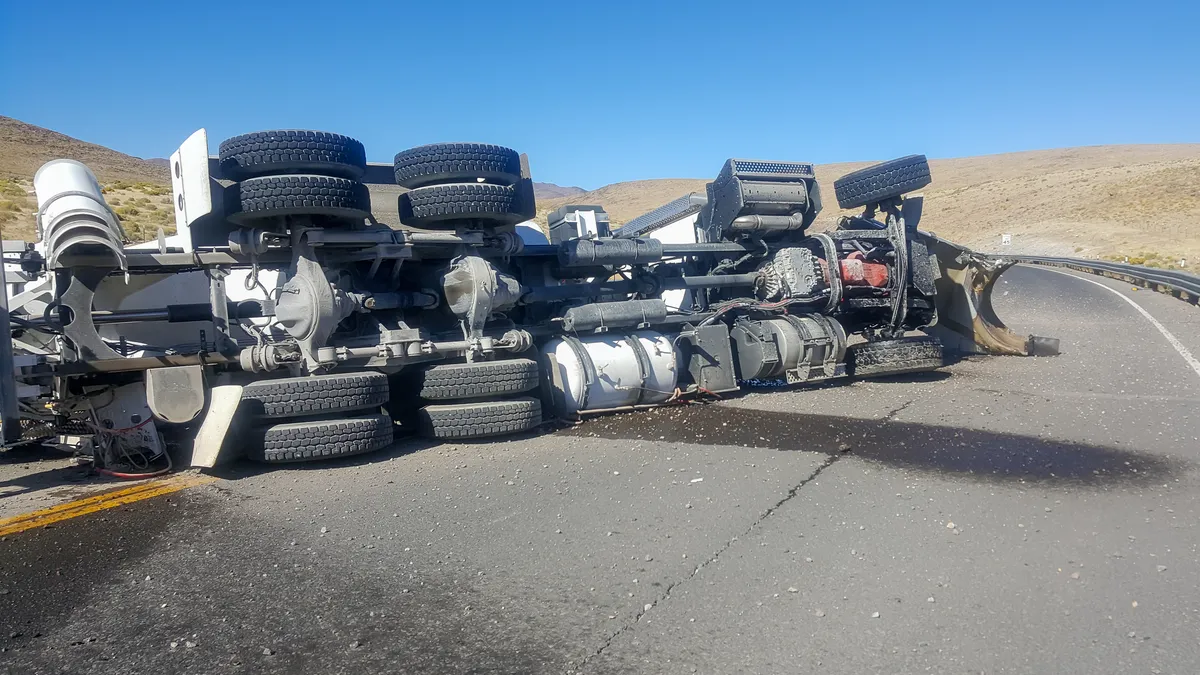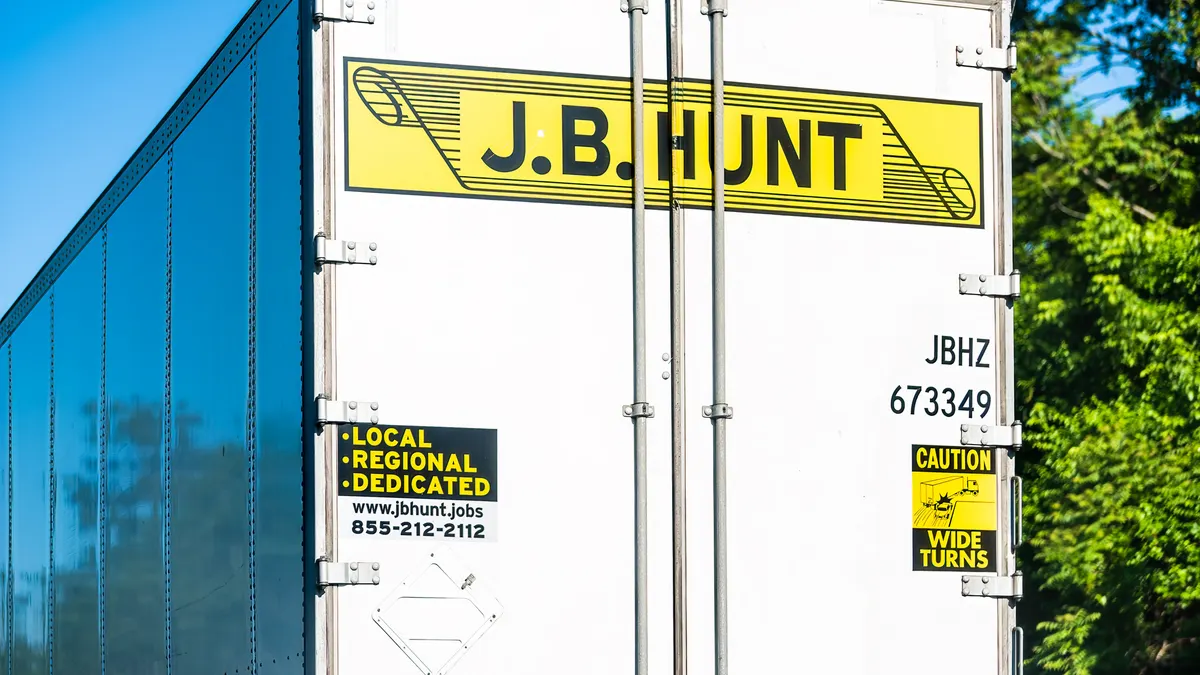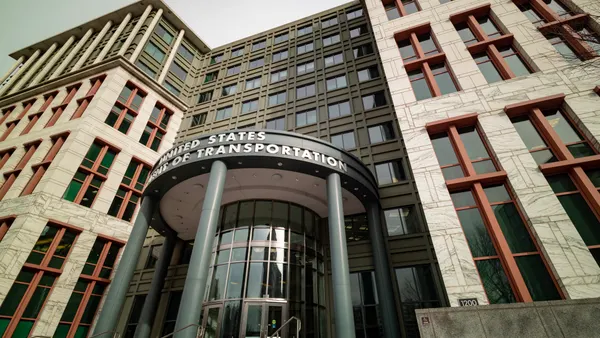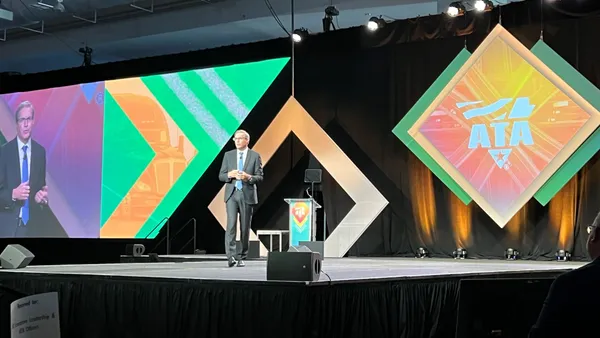LOUISVILLE, Ky. — Large truck drivers who died in crashes frequently didn’t have seat belts on, possibly more than half the time, according to an FMCSA official.
Truckers heard from Federal Motor Carrier Safety Administration officials last week at the Mid-America Trucking Show, and the harrowing statistic came from Tom Keane, the agency’s associate administrator of the Office of Research & Registration.
For truck occupants who died in crashes in 2021, over 40% of them weren’t using a shoulder or lap belt or combination, according to data compiled last year. While the data fails to show who was at fault, Keane said using the safety devices is an easy countermeasure.
“There's another 17% of these cases that were investigated by the on-scene officer where they just weren't sure if the belt was being used,” Keane said. “They just couldn't tell from the crash reconstruction.”
He said that means it’s possible more than half of those who died weren’t using the safety devices.
Keane also noted large trucks were unusually overrepresented in fatal crashes in a workzone. Overall, the biggest factor in crashes was speed, Keane said.
But passenger vehicles are often to blame. In fatal crashes, speeding is more often a factor for passenger vehicles than for large trucks, according to data compiled in an FMCSA report. And passenger vehicles rear-ended large trucks five times more often than the other way around in 2021.
The federal government aims to bring fatalities to zero, but that goal drew criticism during a question-and-answer portion with administrators. A MATS attendee said achieving that would be impossible unless nothing moved.
FMCSA wasn’t alone in calls for safety. During another panel, Albert Transport President Henry Albert shared concerns about trucks following too closely in the Capital Beltway around D.C. He also emphasized the importance of driving properly and without distractions.
A report by the American Transportation Research Institute found that in 2022, compared to 2018, the number of seat belt violations increased by 8.8%.
“We want you to get home every night,” Keane said. “We know how tough your jobs are.”











